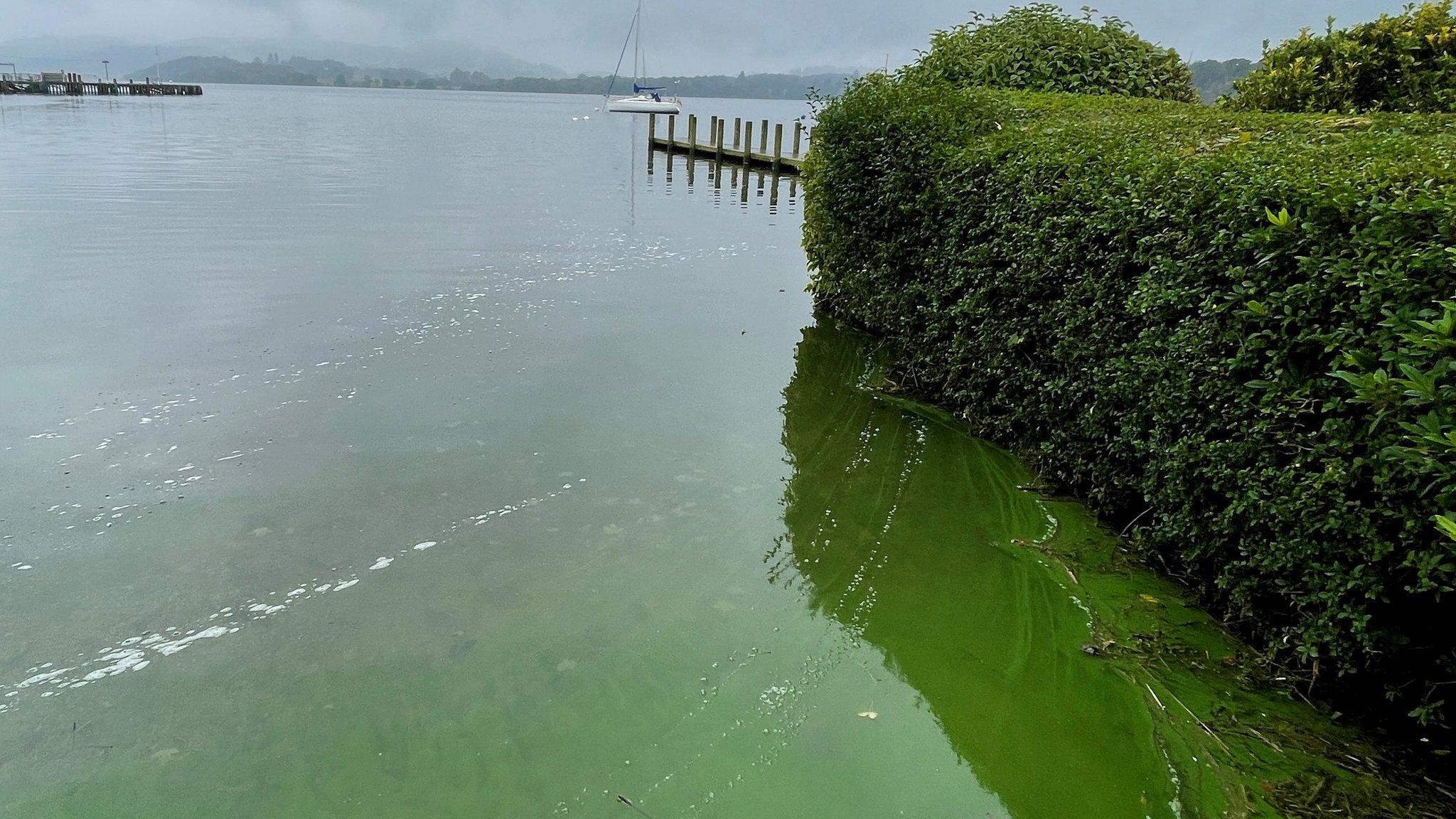Steve Coogan and Lee Mack join pollution protest at Windermere
- Published
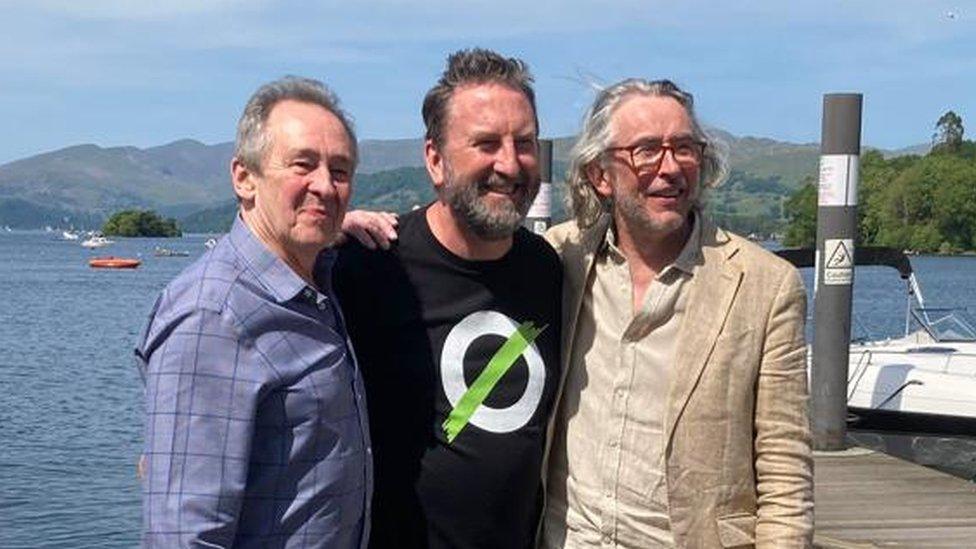
Paul Whitehouse, left, Lee Mack and Steve Coogan joined the protest in Cumbria
Comedians Steve Coogan and Lee Mack joined a protest against the discharge of sewage in the Lake District.
Campaigners gathered at Windermere in Cumbria, claiming the lake had already been damaged by pollution.
Mr Coogan, best known for playing Alan Partridge, said the water company United Utilities was the "chief offender".
The firm said it was investing £900m in making improvements across its network.
It comes after years of campaigns that England's largest lake is facing "catastrophe" unless action is taken to improve its water quality.
Zoologist Matt Staniek claimed a significant amount of the phosphate in the lake had come from United Utilities' owned sites, which was feeding algal blooms.
Blue-green algal blooms can make humans ill and kill animals, while affecting fish numbers.
It was previously claimed that phosphate may also have come from septic tank discharge belonging to home owners and holiday lets, and from run-off from farming land, but this is disputed.
There were 246 days in 2022 when sewage was discharged by United Utilities from storm overflows into Windermere lakes, according to Environment Agency data.
Storm overflow systems are large pipes integrated into combined sewer networks, which automatically release sewage into rivers or the sea during heavy rainfall, to prevent waste flooding homes.
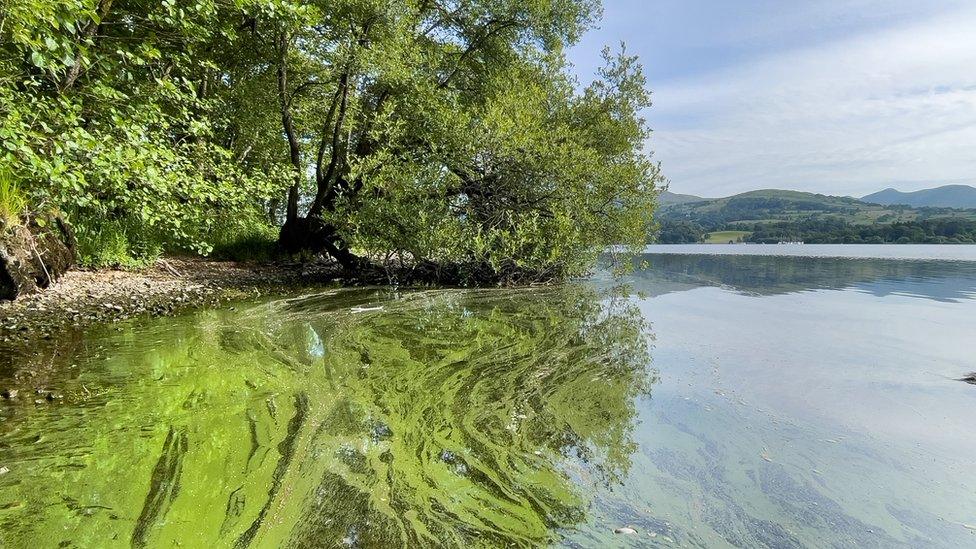
Blue-green algal blooms can pose a risk to humans and animals
"Last year, there were algal blooms which are an indicator of high phosphorus content", Mr Coogan told the BBC.
"There were huge blooms it was quite staggering, [it was] a very fluorescent green colour, it was unmissable."
Mr Coogan, Mr Mack and Paul Whitehouse were among the comedians who agreed to back Mr Staniek, who organised the protest.
Mr Coogan said: "Although I have a very strong local connection here, it's a wider issue nationally and Windermere is the biggest lake in England, the Lake District is [a] Unesco heritage site.
"We're here to tell United Utilities, to quite simply stop putting sewage in Windermere - and to use their resources to remove the damage that's been done over the last few decades."
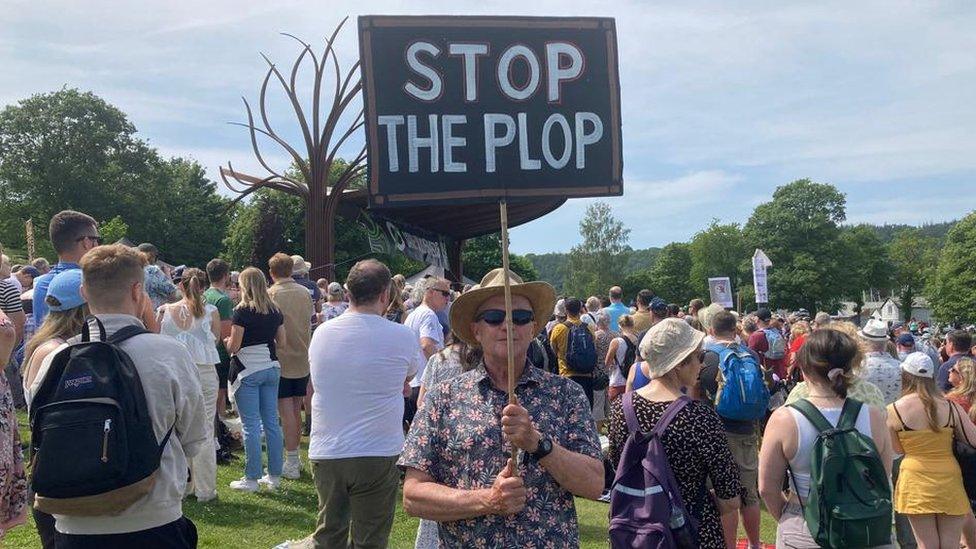
Campaigners made banners to protest against the discharge of sewage
At Bowness-on-Windermere, campaigners held up "Save Windermere" and "Pootopia" banners, with some criticising United Utilities.
Paul Whitehouse, who previously worked on the documentary-series, Our Troubled Rivers, said he wanted to see a "joined-up" approach.
He said: "People are rightly appalled by the way they've treated our water systems and they're going to have to shift, they're going to have to move, and shift policy.
"The ball is in their court - it's not going to go away, I am optimistic for the future".
'Tackling this now'
United Utilities said it recognised there were "concerns" and that it was committed to "playing its part" in minimising its impact on the water environment.
The firm, which previously said it had implemented measures to reduce the phosphate contributed from its systems, said it was accelerating a multimillion-pound improvement programme.
Helen Apps, from the firm, said: "We've pulled together a plan to really start tackling this now.
"We've announced that we're going to be fast forwarding £900m worth of investment over the next two years to get a head start on what will be a huge overhaul of the region's wastewater network".
However, she said it had faced challenges including increased temperature, climate change and increased tourism.
She said: "That's why we all have to work together as a community to make sure that we're treating the wastewater from the systems that United Utilities manages, we're reducing storm overflows and we're also looking at what can be done to improve the discharges that come from septic tanks and the run-off from agriculture as well - it will be a joint project."

Follow BBC North East & Cumbria on Twitter, external, Facebook, external and Instagram, external. Send your story ideas to northeastandcumbria@bbc.co.uk, external.
- Published4 April 2023
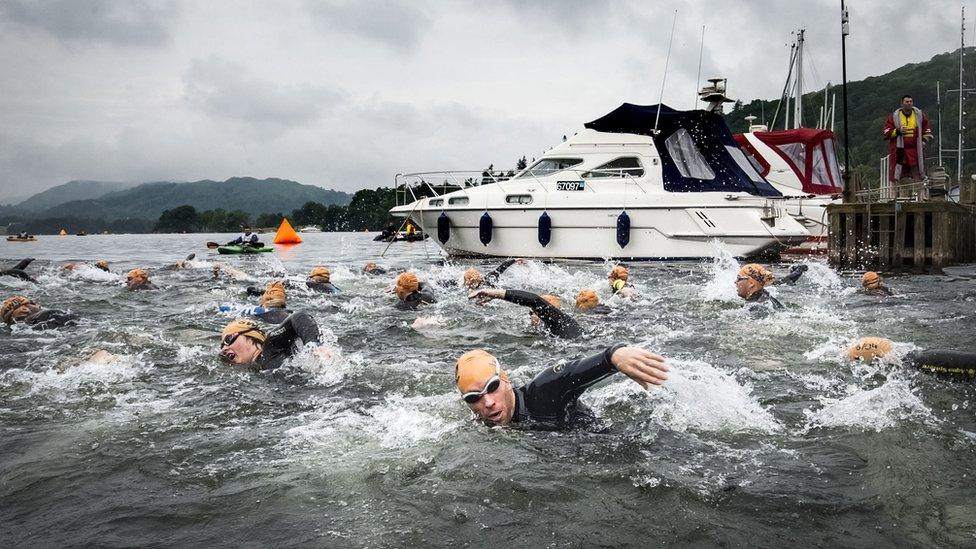
- Published28 September 2022
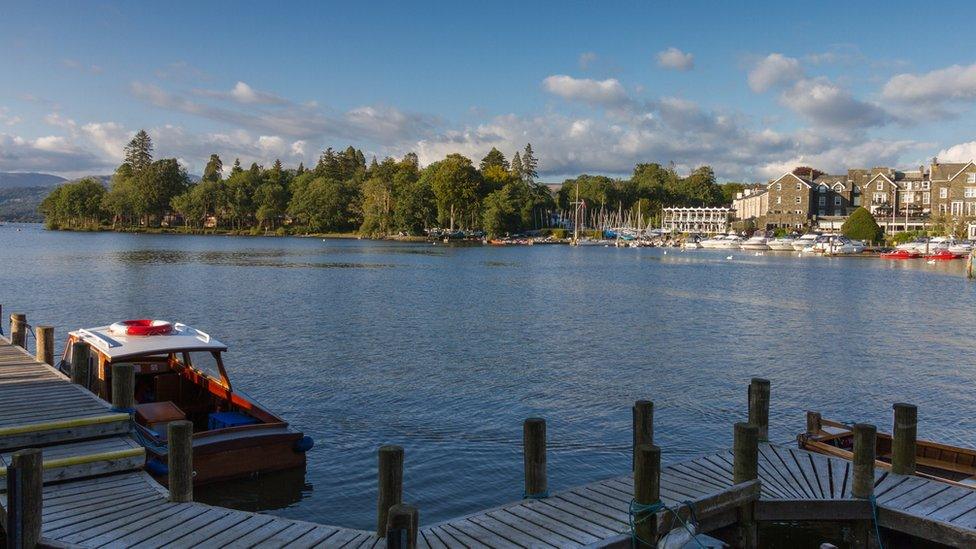
- Published14 October 2021
